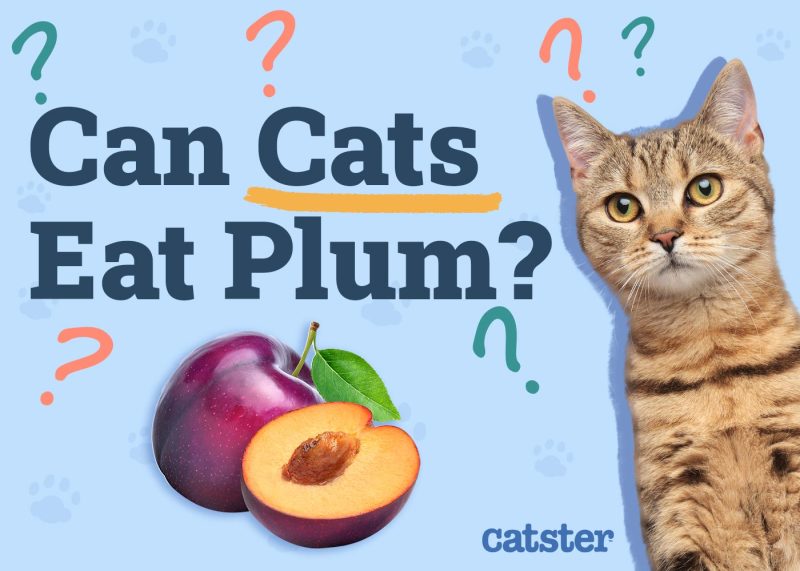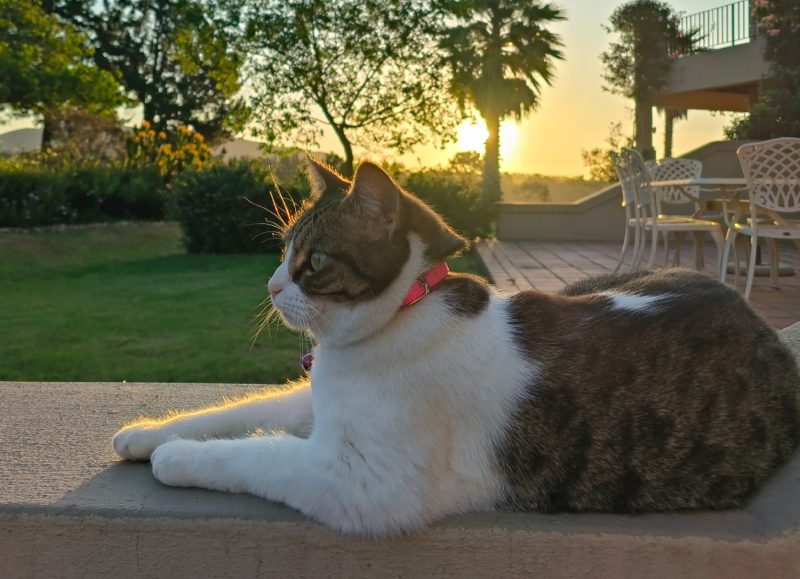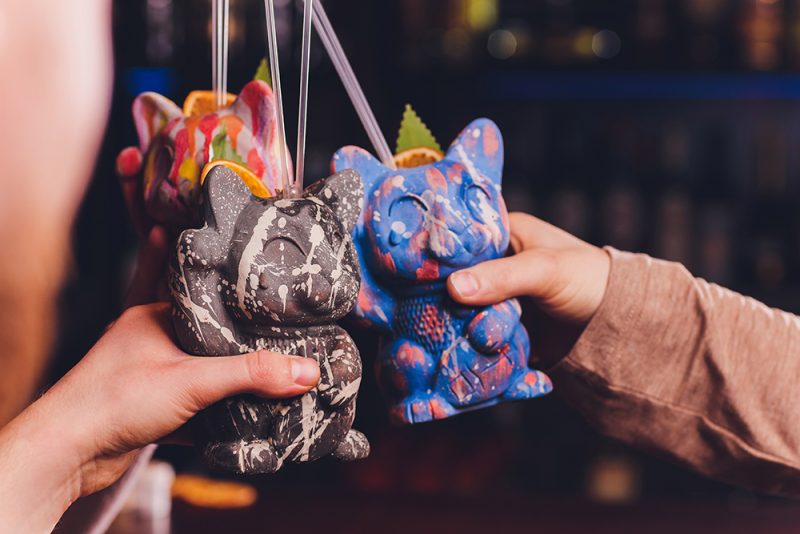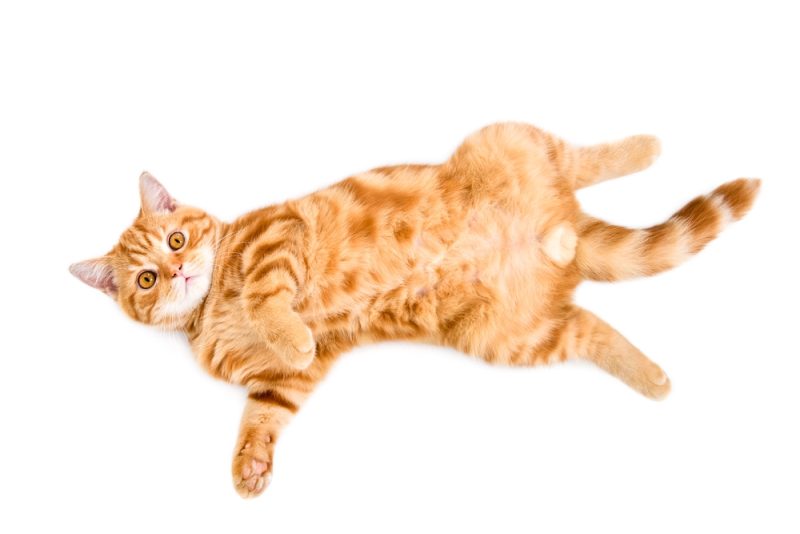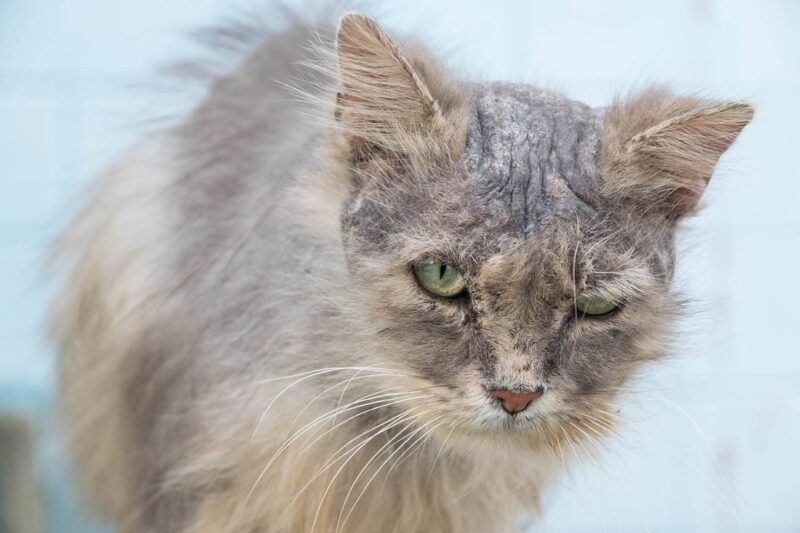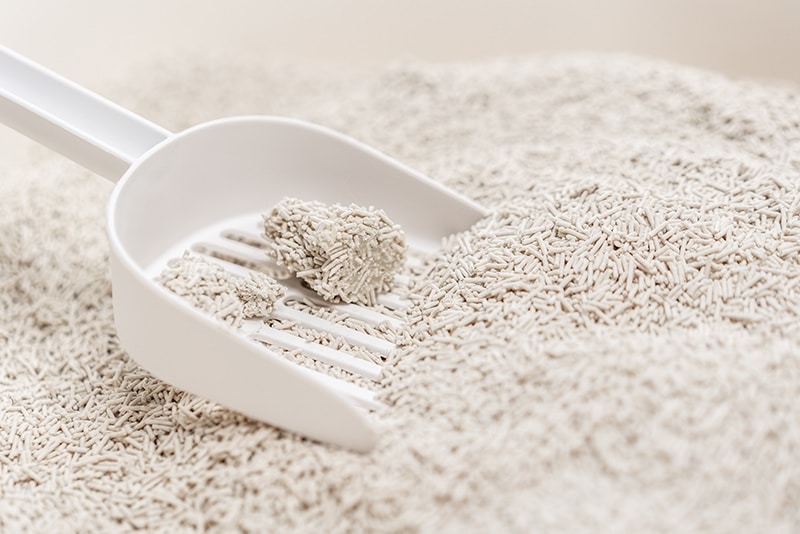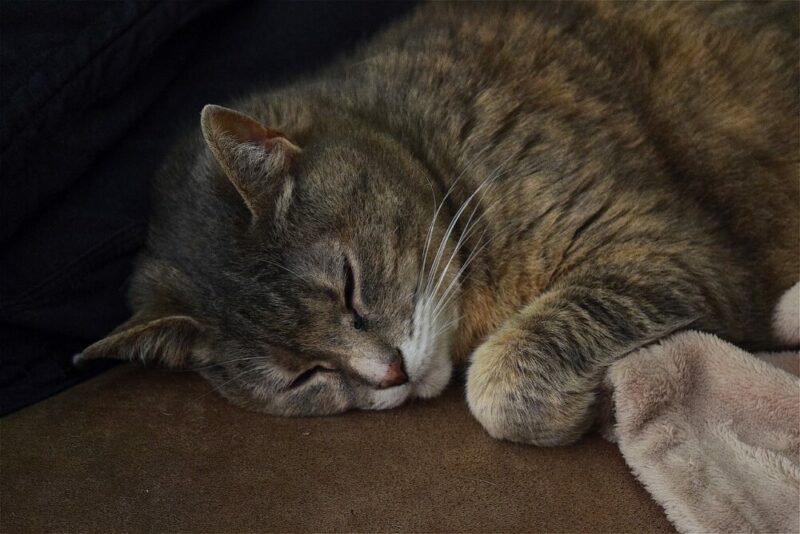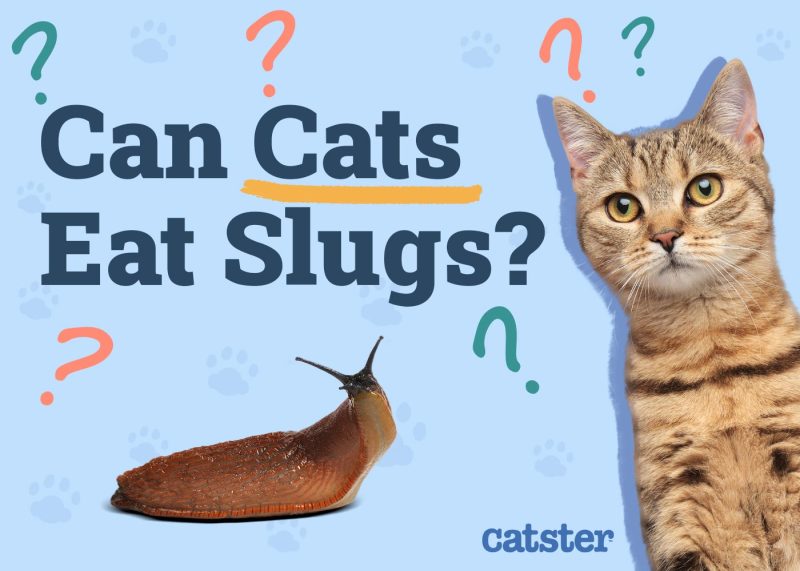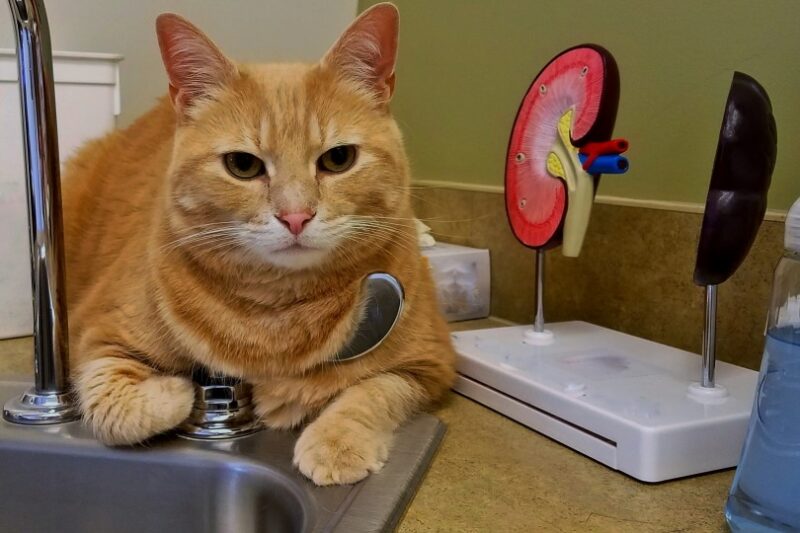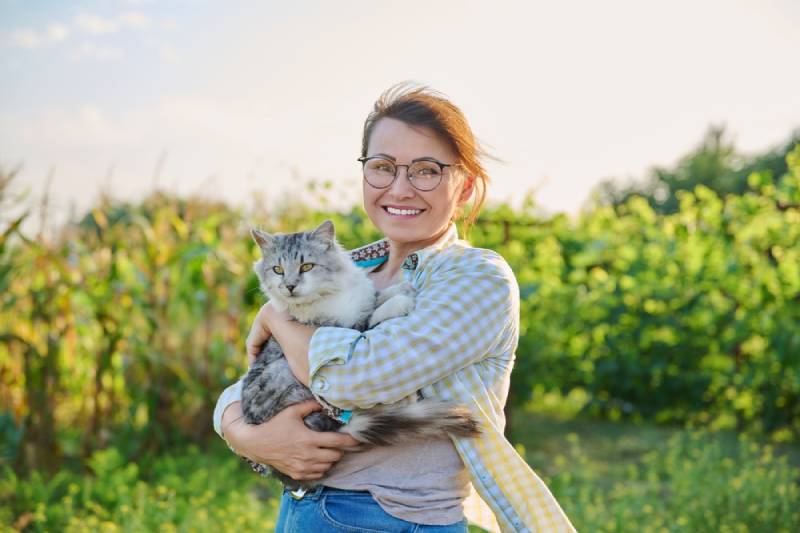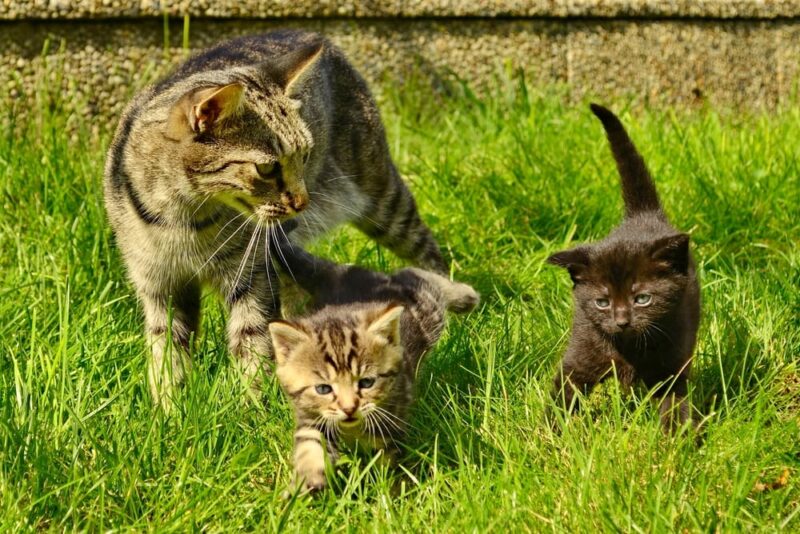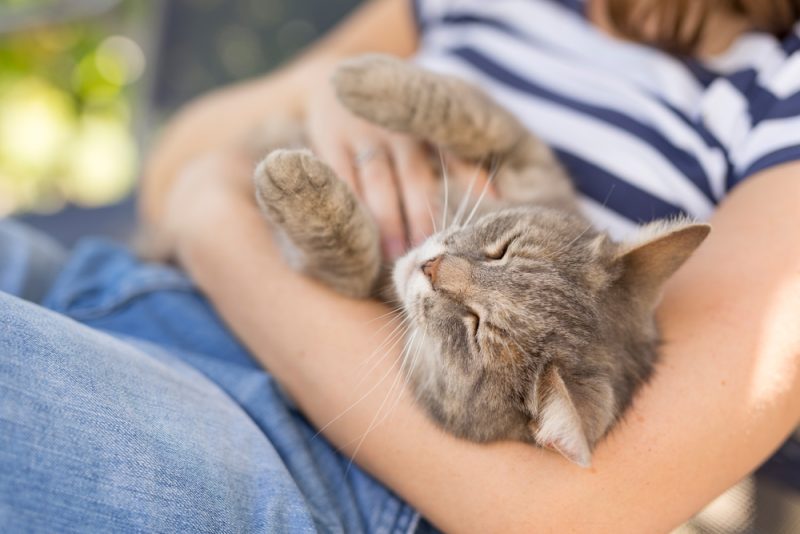Cats are curious creatures that often conduct investigations with their mouths. While cats generally won’t eat foods that aren’t good for them, curiosity may get the better of them from time to time. You should do your best to keep your cats away from any plums in your house since many parts of the plum plant are highly toxic to cats.

Cat Nutrition Explained
Cats have a fairly unique nutritional profile that they must meet. They’re obligate carnivores, which means that their wild diet comprises at least 70% animal proteins. They’ve evolved to have little need for plant-based nutrients because of this, and their cecum—the part of the digestive tract that stores bacteria for breaking down plant material—is not as developed as the cecum of herbivorous or omnivorous animals.
In short, cats cannot properly break down plant material into nutrients the way that an herbivorous or omnivorous animal would.
However, this lack of ability hasn’t translated into a complete lack of nutrition from plant material. Cats don’t leave anything behind when they hunt; they eat the organs and bones and the flesh. When they eat the stomach of their prey, they get not just their last meal, but the remaining bacteria and enzymes present in the digestive tract.
Still, the primary dietary need for cats is animal protein. Protein is the building block of muscles and so many other vital bodily functions. They have little need for nutrients from plant material because their nutrients from protein feed them so well.
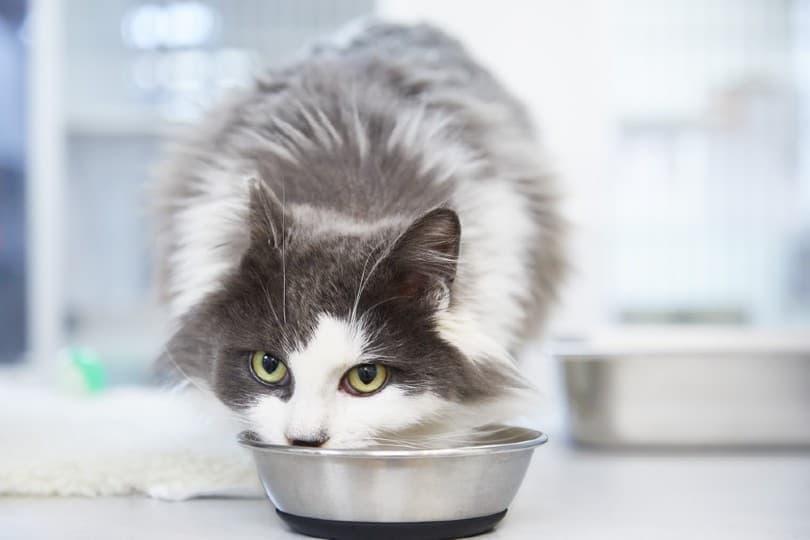
Are Plums Healthy for Cats?
No plums are not healthy for cats. As we’ve already mentioned, several parts of the plum plant are toxic to cats. The stems, leaves, and pits (stone/seed) all contain incredibly high concentrations of cyanogenic glycosides, leading to potential cyanide poisoning in cats. The ripe flesh alone is not toxic.
Additionally, the pits can’t be broken down properly and can become lodged in the digestive tract and cause an obstruction. They should never be chewed as this releases more of the toxin.
It’s unlikely that your cat will want to eat plums even if you offer them because they don’t form part of a natural diet for cats. However, even if your cat is interested in plums, you shouldn’t allow them to have any plums for their safety.
You should not offer your cat a whole plum or any toxin-containing parts. Any health benefit your cat could gain from eating plum flesh is outweighed by the risk associated with feeding your cat plums.


Can Cats Eat Fruit?
Cats may not show much interest in fruit since they don’t have the sweetness receptors that make it so palatable. However, if your cat likes fruit, there are a handful of healthy fruit options you can feed to your cat. The key factor to providing your cat fruit is in moderation.
Fruits have high sugar and water content and may upset your cat’s gastrointestinal tract if they’re fed too frequently or in too large portions. The water, sugar, and fiber content in some fruits and vegetables can give your cat diarrhea and turn them off from eating fruits in the future.
- Apples
- Bananas
- Blueberries
- Cantaloupe
- Cranberries
- Mango
- Pear
- Raspberries
- Strawberries
- Seedless Watermelon
How to Safely Feed Your Cat Fruits
As we mentioned, moderation is essential when feeding your cat fruits. Fruits aren’t part of their regular dietary needs, and while they can have health benefits for cats in moderation, too much of a good thing can harm them!
You’ll want to cut up the fruit into bite-sized portions to help keep your cat from eating too quickly and choking. You’ll also want to make sure you’re portioning your cat’s fruit correctly; fruit and other treats outside of their primary dietary needs should make up less than 10% of their overall diet.
Additionally, make sure that any fruits you feed to your cat are safe for them. Since fruits aren’t part of a cat’s dietary needs, many fruits can lead to gastrointestinal upset or even be dangerous to them when consumed. We recommend seeking veterinarian advice before updating any of your cat’s diet.
Need veterinary advice but can't get to the clinic? Catster recommends PangoVet, our online veterinary service. Talk to a vet online and get the answers and advice you need for your cat without having to leave your living room — all at an affordable price!


What Fruits Are Dangerous for Cats?
Grapes & Raisins
The exact cause of grape and raisin toxicity for cats is unknown. However, feeding your cat grapes or raisins can cause them to go into kidney failure!
Cherries
Cherries are another fruit that contains pits with high concentrations of cyanide, which can lead to cyanide poisoning if consumed by a cat.
Citrus Fruits
Citrus fruits contain essential oils and fruit acids, which can upset the gastrointestinal system of cats.

Final Thoughts
Cats are curious and love to eat. So, it’s no wonder they spend so much time with their face in things they shouldn’t be sampling. Keep your cats away from any plums and plum plants that might be around your house and garden! These are very dangerous for your cat.
If your cat likes fruit and always wants a bite of your fruit, there are plenty of safer fruit options you can offer to your cat in moderation. Fruits like apples, bananas, cantaloupe, and watermelon make great treats for a cat that has developed a liking for fruit!
As always, if your cat has ingested something and you are worried, you should call your veterinarian and speak with them. They will be able to tell you whether your cat needs medical attention or medical supervision to ensure the best possible outcome for them. It’s better to be safe than sorry!
See Also:
Featured Image Credit: 32gustavsson, Pixabay
